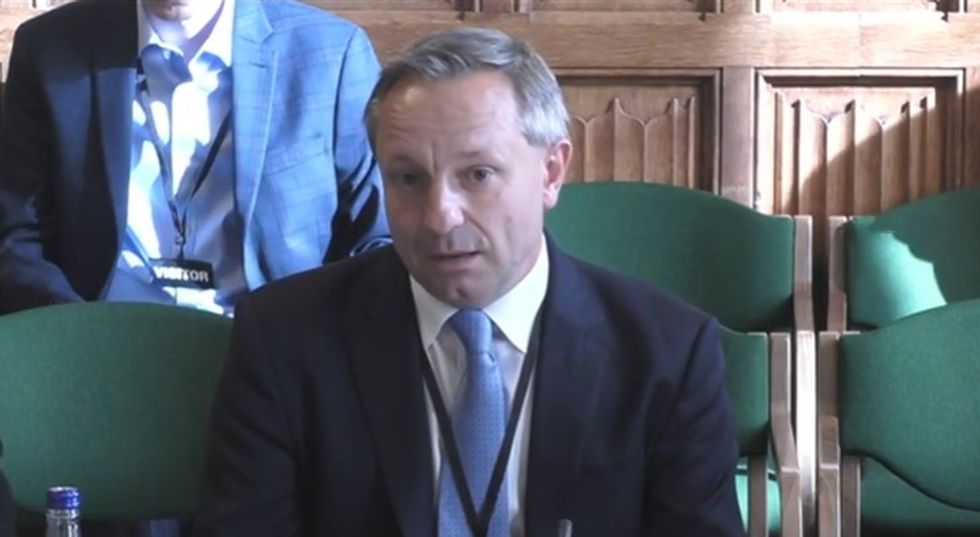Energy bill warning: Higher earners could be charged more as Ofgem looks to fund radical overhaul
Shadow Minister for Energy Security and Net Zero Andrew Bowie MP on Labour’s latest commitments to the environment
Ofgem has launched a review into how energy bill charges are shared, with plans to overhaul the standing charge system
Don't Miss
Most Read
Trending on GB News
Higher earners could soon be asked to pay more on their energy bills under new proposals being considered by Ofgem.
The energy bill shake up is being considered under plans to fund major upgrades to the UK’s energy network.
The energy regulator has launched a review into how the cost of maintaining and upgrading Britain’s cables and pipelines is distributed, as it looks to move towards a more "progressive" pricing model.
Currently, all households pay a standing charge on their bills regardless of how much energy they use. But under the proposals, people on higher incomes could be made to shoulder more of these fixed costs, while lower-income households receive discounted rates.
Jonathan Brearley, chief executive of Ofgem, said: "This wide-ranging examination of how we allocate energy network costs will raise the question of whether there is a more progressive way to pay."
He added: "It’s a question that we need to answer as we go through this transition and as we think hard about getting to a place we want to get to."
 Ofgem chief executive Jonathan Brearley warned some would find their energy bills are 'worse than last year' PARLIAMENT TV
Ofgem chief executive Jonathan Brearley warned some would find their energy bills are 'worse than last year' PARLIAMENT TVThe standing charge is a fixed daily fee that covers the cost of maintaining the energy network, fitting smart meters, and other policy initiatives. It is applied whether a household uses energy or not.
Ofgem’s review comes amid growing criticism that this system is unfair to low-income and vulnerable households.
Many people who use minimal energy to save money or who rely on medical equipment at home still pay the same standing charge as high-usage or high-income households.
Martin Lewis, the Money Saving Expert has described standing charges as "a moral hazard", arguing they "disincentivise lower users from cutting their bills".
He added: "They are by far the biggest single subject of complaint I get from the public about energy bills.
 Ofgem's price cap rise means people will pay towards their energy bills GETTY
Ofgem's price cap rise means people will pay towards their energy bills GETTY The standing charge has increased significantly in recent years. Five years ago, it averaged £182.27 a year. Today, it stands at an average of £334.07 a year, making up nearly a fifth of a typical annual energy bill.
Ofgem says it will consult industry leaders over the summer on how to recover costs in a way that is fairer for all households. One option under consideration is to vary the standing charge based on income.
Previous analysis by the regulator found that moving network costs into the unit rate of energy usage could help around 5.5 million low-income households save £44 a year. However, around 1.2 million others could end up paying £88 more, particularly those with high energy needs who cannot easily cut usage.
Brearley acknowledged the complexity of the issue, saying: "Inevitably there are big pros and cons and big operational challenges before any final decision could be made."

Ofgem says it will consult industry leaders over the summer on how to recover costs in a way that is fairer for all households
GETTYThe proposed changes would form part of a wider push to upgrade the UK's electricity grid as the country transitions to a cleaner energy system by 2030.
The review comes at a time when energy prices remain a major concern for millions of households. Despite recent drops in the energy price cap, bills remain significantly higher than pre-2022 levels.
A final decision on any changes to the standing charge model is unlikely to be made before 2025, with Ofgem expected to conduct an in-depth consultation over the coming months.
In the meantime, households are encouraged to monitor their bills closely and make sure they are accessing all available support, such as the Warm Home Discount and other supplier-specific assistance schemes.







